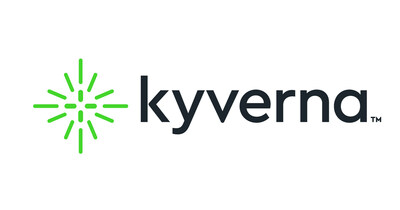Kyverna Therapeutics, Inc. (Kyverna) today announced the publication in The Lancet Neurology of a Letter to the Editor by a group of German investigators describing the first case of treatment using KYV-101 in a 33 year-old patient with severe, treatment-refractory, anti-acetylcholine receptor auto-antibody positive, generalized myasthenia gravis (MG), who was treated on a named patient basis outside of a clinical trial setting.
| |
| [15-November-2023] |
| No adverse events related to CAR T-cell therapy 60 days post-infusion in patient suffering from severe, treatment-refractory, generalized myasthenia gravis KYV-101 is a fully human CD19 CAR T-cell therapy designed for use in patients with B cell-driven autoimmune diseases In addition to the use of KYV-101 in investigator-initiated trials and named patient activities, open-label Phase 1 and Phase 1/2 clinical trials for KYV-101 are actively recruiting patients with autoimmune disease at multiple sites in the US and Germany EMERYVILLE, Calif., Nov. 15, 2023 /PRNewswire/ -- Kyverna Therapeutics, Inc. (Kyverna), a patient-centered clinical-stage biopharmaceutical company focused on developing cell therapies for patients suffering from autoimmune diseases, today announced the publication in The Lancet Neurology of a Letter to the Editor by a group of German investigators describing the first case of treatment using KYV-101 in a 33 year-old patient with severe, treatment-refractory, anti-acetylcholine receptor auto-antibody positive, generalized myasthenia gravis (MG), who was treated on a named patient basis outside of a clinical trial setting. Within the 2-month post-treatment follow-up period, the patient was not observed to experience any adverse events related to chimeric antigen receptor (CAR) T-cell therapy, such as cytokine release syndrome (CRS) or immune effector cell-associated neurotoxicity syndrome (ICANS). In this period, the patient experienced improved muscle strength and reduced fatigue, along with elimination of B cells and a 70% reduction in pathogenic anti-acetylcholine receptor autoantibodies. “We believe this case report provides compelling evidence for the potential of anti-CD19 CAR T-cell-mediated deep B cell depletion in inducing remission and improving symptoms in severe, treatment-refractory MG,” said Aiden Haghikia, M.D., Director, Department of Neurology, Medical Faculty, Otto-von-Guericke University, Magdeburg, Germany, and lead author of the Letter. KYV-101 is an autologous, fully human CD19 CAR T-cell product candidate for use in B cell-driven autoimmune diseases such as MG. “We are extremely happy with the outcome so far, which suggests that a different CAR T-cell approach targeting CD19 with a stably expressed CAR, delivered following a conventional lymphodepleting regimen, has the potential to be safe and effective in severe and refractory MG,” said Dimitrios Mougiakakos, M.D., Director, Clinic of Hematology, Oncology, and Stem Cell Transplantation, Otto-von-Guericke University, Magdeburg, Germany, and senior author of the Letter. “This groundbreaking case report rewards and reinforces our commitment to provide potentially paradigm-shifting therapeutic options to patients suffering from autoimmune diseases,” said Peter Maag, Ph.D., chief executive officer of Kyverna. “We want to commend patients and their medical care teams that are helping advance the field of treatment options for B cell-driven autoimmune diseases.” CAR T-cell therapy involves modifying a patient’s T cells to recognize and remove B cells in the patient’s body. Kyverna’s CD19 CAR T-cell therapy, KYV-101, specifically targets CD19, a protein expressed on the surface of B cells, which is involved in various types of autoimmune diseases. Kyverna plans to continue to explore additional indications for KYV-101 and develop a robust pipeline of promising product candidate immunotherapies aimed at addressing unmet medical needs in autoimmune diseases. About Myasthenia Gravis (MG) About KYV-101 Kyverna is currently conducting two trials of KYV-101 in patients with lupus nephritis, an autoimmune disease in which more than half of patients do not achieve a complete response to current therapies and are at risk of developing kidney failure. Additional clinical trials of KYV-101 in systemic sclerosis, myasthenia gravis, and multiple sclerosis are in preparation. We believe that the differentiated properties of KYV-101 are critical for the potential success of CAR T cells as autoimmune disease therapies. About Kyverna Therapeutics Kyverna Media Contact: 1. Brudno et al., Nature Medicine 2020; 26:270-280. Note: Letters published in the Correspondence section represent the views of the authors and not necessarily the views of The Lancet journals. Letters to the Editor are not normally externally peer reviewed.
SOURCE Kyverna Therapeutics |





